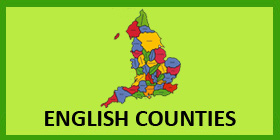




Back to the archives home page

October 2022
The sad death of Her Majesty Queen Elizabeth II meant, in many cases, that schools threw away the curriculum and based many lessons
around Her Majesty, her life and the process of changing monarchs. Interestingly, for many teachers, this was a new process to experience too.
In fact, as few teachers work beyond the age of 70, possibly all teachers.
But suddenly learning became relevant and real. Would we have to hand in all our coins tomorrow was just one of many questions I
heard young people had asked? When another child found out that the monarchs head of our coins alternated in the direction it faced, that child
went back over 500 years to work out which head faced which way. That child had now gone back through a list of English Kings and Queens without
being told to do so.
Understanding that King Charles became King when his mother died and, at that time, he was at her bedside, was easy. Discovering that
the late Queen became our monarch when up a tree in Kenya brought home the significance of an instant and seamless change.
Modern technology and the abundance of news organisations brought everything home to the ordinary person as had never happened before.
We all saw things for ourselves but this also allowed us, as learning facilitators, to help children use their imagination to see how things were
in the past. When a herald proclaimed a new monarch in St James Palace in bygone days only the people in the courtyard knew. Now it was on TV and
nearly all would know. Children could begin to see the reasons some of our traditions were as they are.
This brings me to the purpose of this piece and, yes, it does have one. Having reality join the learning process is one of the biggest
tools to making learning more enjoyable, more relevant, more believable than just talking about it. It also means that the learners will be more
likely to ask questions about it and it is by listening to those questions that we, the learning facilitators (you may know how much I dislike the
word teacher) can guide the learning process.
We recently linked up with our local forest school and they will be providing a little video each week which, I know, could stimulate
any learning programme, whether in school or at home. They work in the Early Years age group but it is at that age when a general attitude to
learning can be formed. To put together a learning programme for all young people through their school years, this is where we should start. We shouldn't
say this is how you should learn for “A” levels, let's work back from that. We should look at how learning happens at a young age and plan forward from there.
Now I know any school is part-made by its leader, its principal, and although Forest Schools like more conventional schools have a basic
ethos, it is very much how it is interpreted that matters. I am therefore basing much of this on what I have seen, and indeed heard, at this local school.
I know the approach is holistic and that the leader acts as a facilitator (I obviously like this). I know that each participant is treated as an
individual and not as a pupil in a class and I know that much of the learning that happens is brought about by the natural curiosity of the young mind.
I have spent quite some hours talking to Molly, the leader at this school. It fascinates me and, unlike the teacher who once told me he
didn't teach computers because the kids knew more than him and that wasn't right, I am happy to learn from someone a little younger than I. That's
little as in Saturn is a little further away from earth than Mars. I believe our beliefs, ideas, thoughts on learning are not too dissimilar and my
only emotion is one of jealousy that she got there so much quicker and has more time to make a difference.
Weirdly, at the Forest School, when Molly , and I talked about what videos to do the first thing we came up with was different trees,
some fun facts and also looking at the different leaves.
I said earlier in this piece that it is the experience when young that will form views and attitudes in later life. I was in my late
twenties when my eldest children were in the Early Years stage. Maybe my attitude did have some effect as last Sunday my children had taken their
children on a walk in nearby woods. As a game the children had collected loads of different leaves. That night, after the birthday dinner, we had a
quiz where we had to identify each leaf as it was pulled, by one granddaughter, from the shopping bag in which they (the leaves not the grandchildren)
had been collected. The excitement of trying to name each leaf and then, yes using Mr Google, checking it, was clear for all to see. Learning was fun.
It wasn't a static process in a classroom, it was a real process in a wood (and a dining room because we don't eat in the woods, well not in October anyway).
Again, I'm the parent who took these same children out of primary school for a year to travel around their own country. They learnt a lot and it did them no harm.
Curricula have a use in regulating learning across subjects and indeed our country. But rigidly followed they destroy the spontaneity that learning can have.
As I did though, parents can have a influence on learning outside of school times. I'm not suggesting you take a year off and travel with your
children, quite a few people do, but just let them spend time with you. Sorry to keep quoting her, but Molly told me she sometimes accompanied her dad in his
work and learned things useful in life as well as seeing work in reality. Let the recent events be a lesson to both schools and for schools and be assured that
there are two people contributing to this website who believe in learning outside the classroom box..
PS if you see Molly please don't tell her I got most of the leaves wrong. On the other hand you could tell her, and it will just prove that you're
never too old to need to learn; bend down and pick up leaves, yes; learn, no. Oh, and Molly, lying on the ground behind a bench operating a puppet does not make
me mad.

